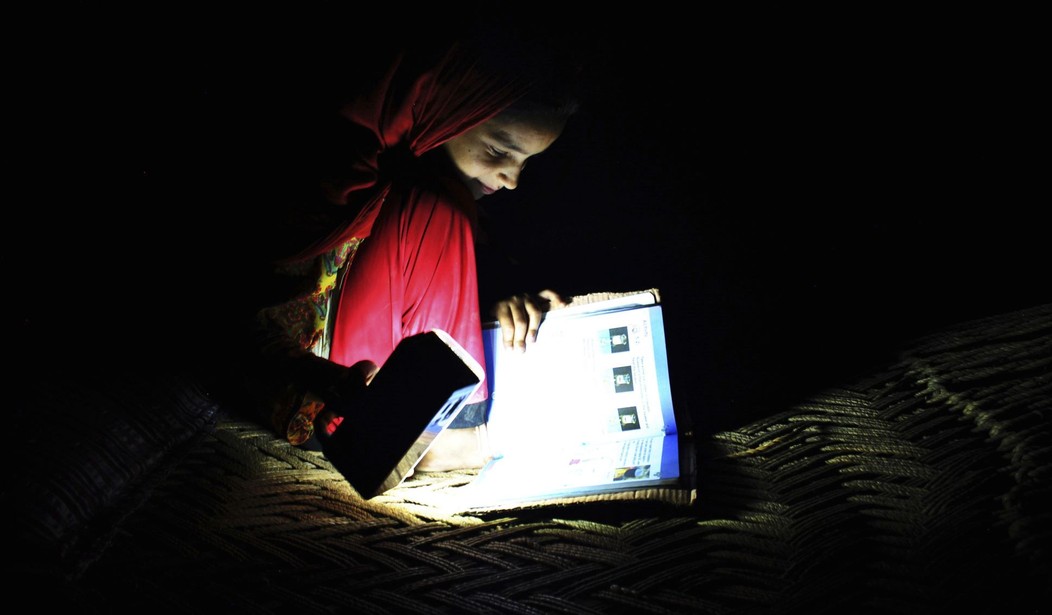The Associated Press has a curious story out of China this week that gave me pause when I first saw it. It’s a story about people in China eating their meals using flashlights or the lights on their cellphones to be able to see. Some homeowners and businesses are firing up generators to keep the power going during prime demand hours. So what’s going on? Have they run out of fuel? Are their powerlines coming down during wildfires as we’ve seen in California? Nope. As it turns out, there’s plenty of power to go around but the government simply shut it off for their own policy reasons.
People ate breakfast by the light of smartphones and shopkeepers turned on generators as cities across China enforced power cuts Wednesday to meet official conservation targets and ease shortages in some areas.
News reports blame high coal prices they say make power companies reluctant to meet booming demand, while economists say the real motive is political: Officials are under pressure to curtail energy use to meet official targets.
In Shenyang, the northeast’s most populous city, restaurant owner Li Yufeng used a battery from an electric bicycle to run a pot for noodles after seeing a notice power would be switched off at 7:30 a.m. Li said he started work two hours early, at 6 a.m., to prepare chicken, sauces and other dishes.
This is probably one of the best examples you could ask for in terms of the difference between a free, capitalist society and the lives the people of China lead under the Chinese Communist Party. The Chinese have an almost unlimited supply of coal and the “official party line” about some producers not wanting meet energy demands because of a bump in coal prices is nonsense. The government controls both the prices and the supply chain. The reality is that the CCP just started ordering various producers to shut off the juice.
But why? The AP also helpfully provides some clues leading us to the real answer. China’s rapid expansion has more than doubled their power consumption over the past couple of decades. Because they use a lot of “dirty” energy, that leads to more emissions. Why would they care? Because China is hosting a U.N. environmental conference next month where emissions will be a topic of discussion. They are anxious to show that they are actually curbing emissions when they never actually do that. To not produce some good numbers to show the UN would be a political embarrassment.
So there’s only one way to accomplish that goal. They shut down the power for significant portions of the day, regardless of the consequences. The word goes out that the electricity will be suspended starting at 7 in the morning and remain out throughout most of the day. This has already caused a significant slump in their manufacturing output, leading to concerns that the global supply chain for things like cell phones and other products will be further disrupted. People like the owner of the noodle shop in the linked article may be able to cook some food with a bicycle generator, but you’re not going to run a factory that way.
What of people who rely on home medical equipment that requires electricity to sustain them? Is there any exception being made for them? The report doesn’t delve into that, but I’ve been covering power grid issues for a long time and I can assure you of one thing. You don’t shut down a grid and put in a caveat saying “except for these 348 houses that have people on respirators.” Those people are on their own to generate some juice.
Welcome to the real China under the current Chinese Communist Party. In the United States, we institute rolling blackouts when there isn’t enough energy to keep the grid going (which is bad enough). But in China, a political decision can be made and they’ll pull the plug on their own people and write off any resultant deaths as collateral damage for the greater good of the CCP.








Join the conversation as a VIP Member